#greek jewish
Explore tagged Tumblr posts
Note
What really sucks is how, while many Greek Jews have been here for literally centuries, and even for the ones that came later on, still, our traditions are so heavily linked with the standard Greek traditions (Purim which is our Apokries, has been transferred for a long time, two weeks earlier and is celebrated during the Christian Apokries instead of the standard)and it sucks that people still claim that "jews are not truly Greeks" and how we don't belong here. Sadly I have been hearing that rhetoric even more lately to the point that I don't mention that I'm Jewish to people I don't know well, in case they are weirdos. And the way that the government is going (far right with the Spartans and everything) I don't see the situation getting better soon.
What's your opinion on this theitsa;
Hello! :) First of all, thank you for entrusting me with your thoughts! It means a lot!
It irks me when I hear "they don't belong here" about people who have been citizens of this country for a very long time! (it irks me regardless, but whatever) What the fuck "belong" even means?? And who the fuck decides that?? They are here, they are citizens, they are part of the Greek history, the end! Even more so if these people speak Greek, they have Greek education, they live the Greek reality every day, they fight for the same things as the rest of the Greeks, and so on.
It sucks that this country makes you feel like you have to hide, or explain yourself in case they learn you are Jewish. This shouldn't have to happen! And, to be fair, no one is 100% "pure" Greek (I hate the concept of purity but I mention it here for argument's sake). We all have at least ONE ancestor of Slavic (/Arvanite), German, Turk, Egyptian, Hebrew, Armenian, Persian etc descent. We don't live in a bubble! Markos Botsaris (+ his crew) and Laskarina Bouboulina were Arvanites!
For this reason, I think "How Greek" one is, shouldn't define how much respect they get as Greek citizens. We are all enclosed in the same borders under a common government and we will achieve shit if we give in to infighting about who is The Best.
At the same time, I don't mean to diminish your argument about Jewish Greeks having Greek cultural elements. It makes sense that Jews in Norway and Jews in Greece won't have the exact same culture, and that they will be affected by the culture around them. I imagine it's hurtful when this part of your identity is overlooked. I'm just saying that all people here are "allowed" to be here, since our law has allowed it.
I wish I could tell you "don't be afraid! go forth and be yourself!" but realistically you will be the judge of what's safer for you. At least from my perspective, most Greeks won't have an issue. They might be very interested, even. But one or two times there will be Greeks who will create an issue for you. And these bigoted Greeks might be even more than we think.
The "funny" thing about far-right parties like the Spartans is that, while they claim to be "for Greece", they seem to parrot USAmerican rhetoric (non-Greek rhetoric) which goes against how the locals historically viewed the Jews in Greece.
Correct me if I am wrong, anon, but I feel like the rise of antisemitism in our days is very connected to the US-Americanization of Greece? This type of antisemitism (the type of conspiracies) and the intensity is the exact same I see from people in the US who worry when Jews are in positions of power.
Now, it's a historical truth that certain Greeks worked with the Nazis for power, at the time Greece was under Nazi/Axis occupation. (The Greeks still hate these families that were Germanophille at the time, because these families also worked against the interests of the rest of Greeks) So antisemitic sentiments existed before. But the land of what is now Greece was under the Ottoman Empire for centuries and the Ottoman Empire was a haven for Jews who were heavily discriminated against and killed in West Europe.
Many Jews acquired power and influence in big Greek cities like Thessaloniki, owning factories, businesses, newspapers, and real estate. They were allowed to prosper and they were an important part of our societies. (The Byzantine Museum of Thessaloniki has an exhibition this year about the Thessalonian Jewish community. It's outside and left of the cafeteria, they have a new room)
At the same time, obviously, being Jewish didn't make you automatically rich and influential. Before the second world war, there were Greeks and Turks, and French who were very rich and influential, too. Traditionally the Greeks understood this was a Class thing, not an Ethnicity thing. (And, in any case, no people deserve a freaking genocide!!!) But my point is, in the Old Times I didn't see sentiments such as "oooo the Jews are here to control us!!" whereas I feel this is a big part of the Greek antisemitic rhetoric today.
The reason I think this sentiment is brought by the US is that in the US there are many Jewish communities and many have acquired wealth or they had generational wealth. But in Greece there as soooo few Jews and they don't hold the same amount of wealth. Like, the bigoted conspiracies of the far right don't even make sense in the Greek reality 😂
For those who don't know: Despite the efforts of Greek Jews to escape the holocaust and the efforts of many Greeks to help them escape in the Επαρχία (rest of the country, outside of Athens), like in Zakynthos, an extremely large number of Jews in Greece got killed by the Axis powers in the Second World War. Hence, the large Jewish population of Greece has dwindled, and the community is really small nowadays. The community (at least in Thessaloniki) is also cautious to open their culture to other Greeks because they fear antisemitic sentiments might hurt them again. (Which is understandable to me. Btw I heard this cause a friend writing her thesis needed access to the Hebrew records in Thessaloniki)
Sorry for the long response, anon! My thoughts were many, as you can see. I would be very happy if you could tell us more things about Greek Jewish culture, if you don't mind! (how it's similar or dissimilar to the more frequent version of Greek culture) I could not find many things online, or even in museums, about it and I am genuinely curious.
Feel free to correct me on historical stuff, if you have different info! I am sure we would all be better for learning it because so much culture and historical perspective was lost from the collective average Greek consciousness with the holocaust. I hate that this gap gave rise to the rhetoric of far-right parties. I would also like to be more equipped to speak against their antisemitism by knowing more facts.
I also wonder if it's any awkward celebrating Hanukkah as a Greek Jew? 😅 I think it's not awkward (because the Greek Seleucid Empire was a looong time ago), but I am really curious if the Greek Jews think some way about it.
#greek jewish#romaniote#<- anon might not identify with this but I'd like someone to also find this post while looking for Jews in Greece#so it's just for convenience purposes#answered
17 notes
·
View notes
Text
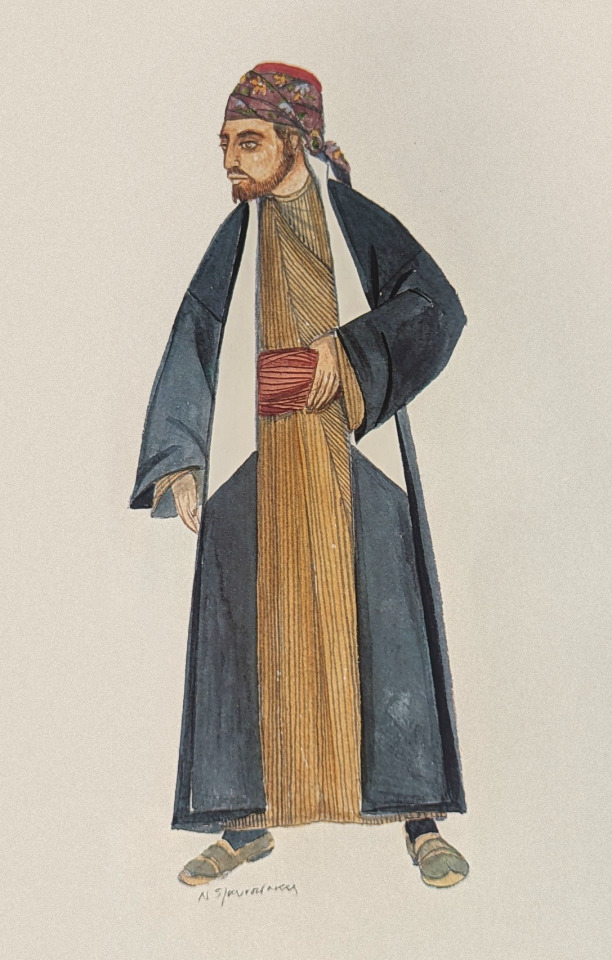
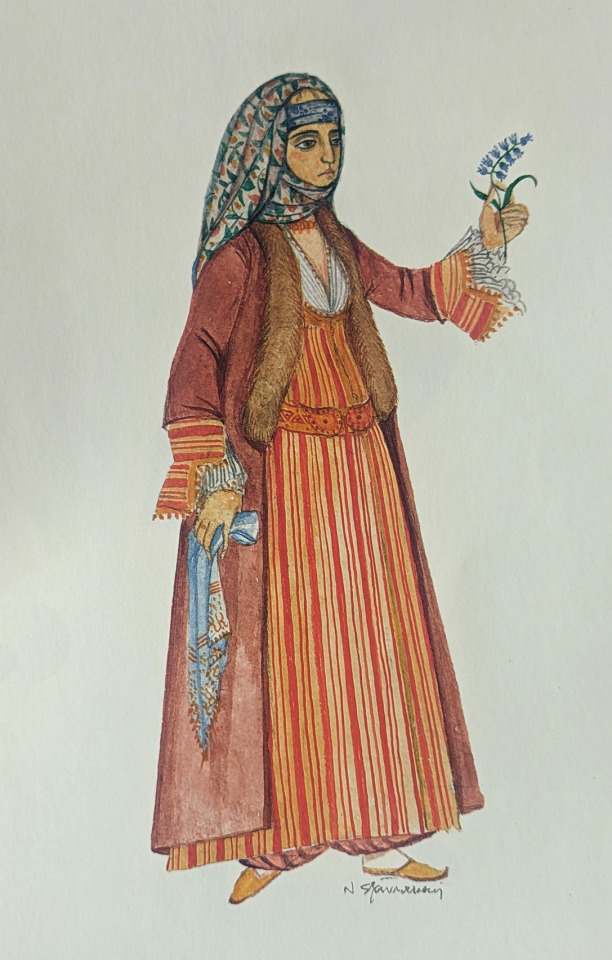
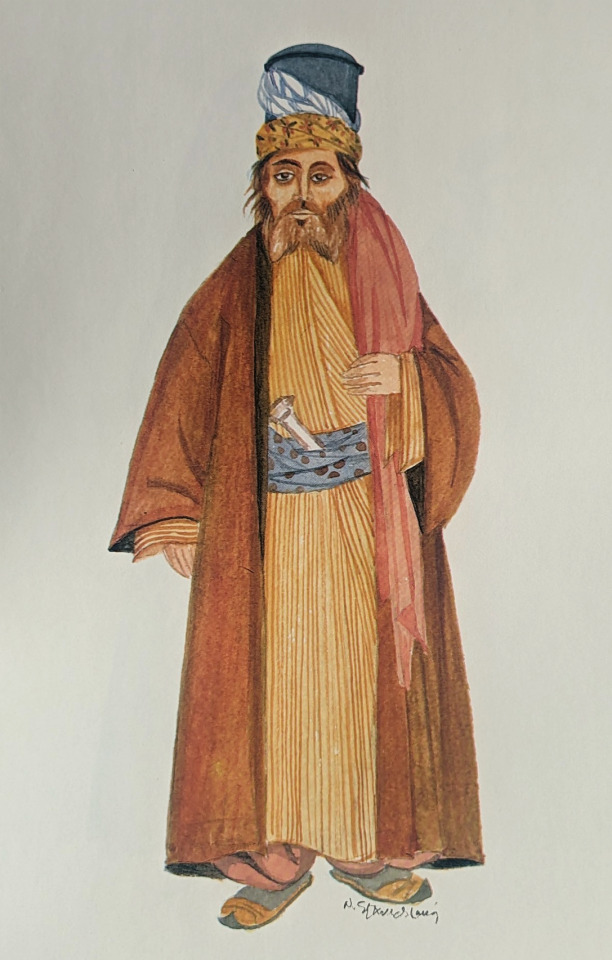

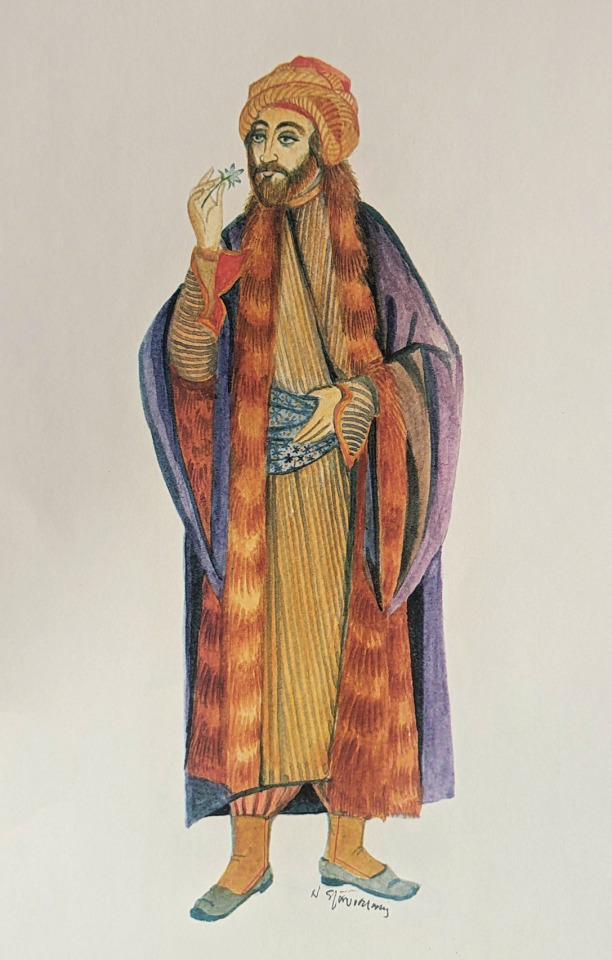
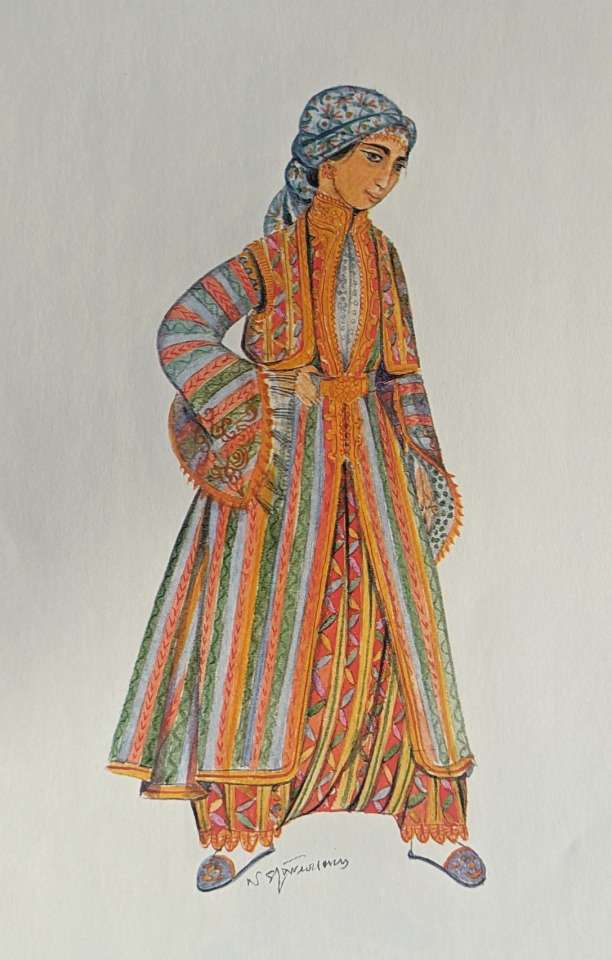
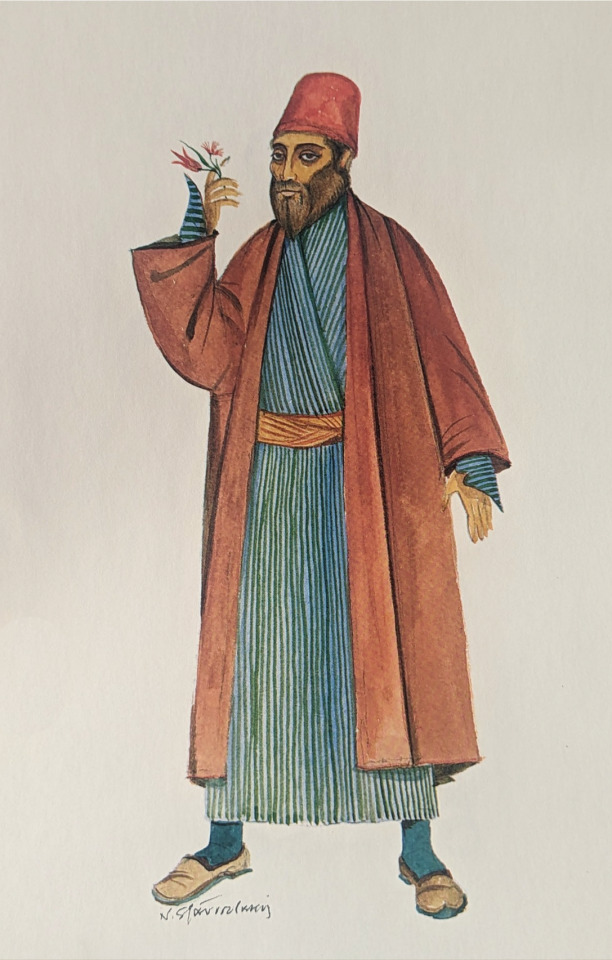

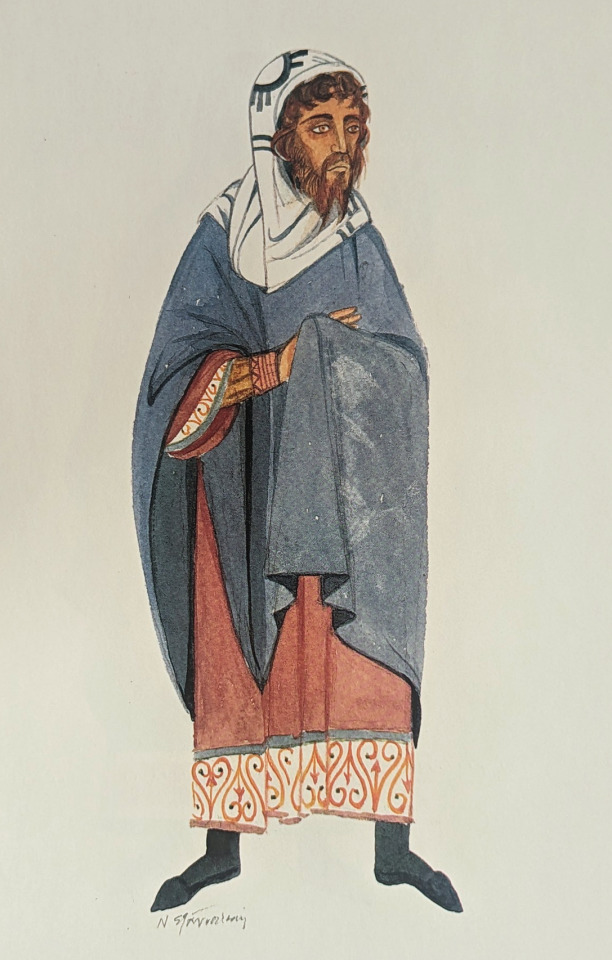
Stavrouakis' work has always meant so much to me, I collect his publishing as I can. I wanted to share some of his depictions of Greek Jews and our clothing, especially the ones I haven't seen shared online.
#jumblr#greek jews#men's clothing is way less often depicted in traditional clothing work and it makes me so happy to own all of these drawings of his.#jewish stuff#he has a great cookbook too.#i just got this publishing of his a couple weeks ago and it makes me so happy. it comes in both greek and english in the same packet.
1K notes
·
View notes
Text
Why am I just now finding out that Greek Fire was invented by a Jew??
Apparently he fled Syria after the Arab conquest and gave the recipe to the Byzantine Emperor so that they could repel the Arab naval fleet approaching Constantinople.
0% Greek but 100% everything is on fire
#jumblr#Jewish inventions#apparently include Greek fire#which is was made by a Jew born in Syria on behalf of the byzantines#so 0% Greek#but very fire#mizrahim#mizrahi history
364 notes
·
View notes
Text
a sad story about a beautiful jewish culture; i recommend we all fall down this rabbit hole.
i think this is something we should spread awareness about as jews, because they aren’t the only ones who’s rich and unique traditions may be lost.
**EDIT: THIS ARTICLE IS FROM 2014
more recent wikipedia article
529 notes
·
View notes
Text

“Athena sucks bc she has internalized misogyny, anyway that’s why I love Lilith even tho she rapes ppl and kills children”
#bruh no wonder Greeks and Jewish ppl are sick of self proclaimed pagans#greek mythology#ancient greek mythology#greek pantheon#greek goddess#Athena#Lilith
60 notes
·
View notes
Text
Numerology: The number 9
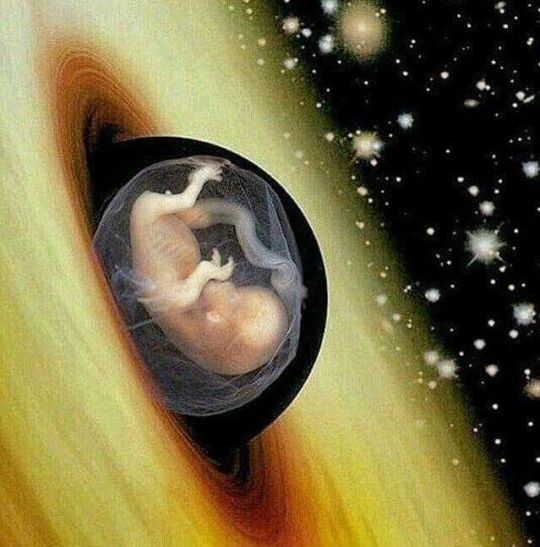
9 18 27 36 45 54 63 72 81 90 99
What does the number 9 signify? 9 means completion, but not a final ending.
In astrology: the number 9 is associated with the planet Mars, which is said to govern ambition, energy, and action. People born under the sign of Mars, which is associated with the number 9, are said to be confident, independent, and adventurous. The ninth sign of the zodiac, Sagittarius, is known for its adventurous and expansive spirit, which reflects the qualities of the number 9. Additionally, the number 9 is linked to the concept of karma, which refers to the idea that our actions have consequences that come back to us. This is because 9 is the result of adding up all the single-digit numbers before it (1+2+3+4+5+6+7+8=36, and 3+6=9), suggesting that we reap what we sow. Overall, the number 9 is significant and powerful in astrology, representing completion, growth, and the consequences of our actions. Moreover, in Vedic astrology, the nine planets or Grahas are believed to have a significant influence on human destiny and are associated with different qualities and energies. These planets include the Sun, Moon, Mercury, Venus, Mars, Jupiter, Saturn, Rahu, and Ketu. The Sun and Moon are considered the most important planets, as they are responsible for life on Earth and are associated with the soul and mind, respectively. The number 9 is associated with the planet Guru or Jupiter, which is considered the most benefic planet in the horoscope. Guru is associated with wisdom, knowledge, and good fortune. People who are born on the 9th, 18th, or 27th of any month are said to be influenced by the planet Guru and are considered to be blessed with good luck and prosperity.
In astronomy: the number 9 is perhaps most famously associated with the nine planets in our solar system. the number 9 has significance in the relationship between the Sun, Moon, and Earth. It is said that the Sun completes a cycle of 360 degrees in the sky in one year, which is divided into 12 zodiac signs, with each sign taking up 30 degrees. The Moon, on the other hand, takes about 29.5 days to complete its cycle around the Earth, and during this time, it passes through all 12 zodiac signs. Interestingly, the total number of days in a solar year (365.24) multiplied by the number of lunar months in a year (12.37) equals 4536.24, which can be reduced to 9. This is known as the lunar-solar cycle, and it is believed to be a powerful symbol of completion and transformation.
In mythology: the number 9 is often associated with spiritual growth and knowledge. For example, in Norse mythology, Odin hung from the world tree Yggdrasil for nine days and nine nights to gain wisdom and knowledge. In Greek mythology, nine muses inspired creativity and art, while in Egyptian mythology, nine gods presided over the underworld.
In mathematics: the number 9 has some unique properties as well. It is the highest single-digit number, and any number multiplied by 9 will always result in a number whose digits add up to 9. Additionally, the number 9 is the sum of the first three square numbers (1² + 2² + 3² = 9) and the sum of the first three cube numbers (1³ + 2³ + 3³ = 36). This property of the number 9 is known as the "digital root" and is used in various mathematical and divinatory practices.
In physics: the number 9 appears in the fundamental equations that describe the behavior of the universe, such as the nine-dimensional equations of string theory. In mathematics, the number 9 is used in a variety of numerical systems, including the base-9 system used by the ancient Maya.
In science: the significance of number 9 in science is reflected in its frequent appearance in various scientific phenomena. For instance, the periodic table has nine fundamental types of atoms, known as lanthanides. The human body is made up of nine major organ systems, including the cardiovascular, nervous, and respiratory systems. The electromagnetic spectrum has nine main categories of waves, ranging from radio waves to gamma rays. Sun and Earth: The diameter of the Sun is supposed to be 108 times the diameter of the Earth. The distance from the Sun to the Earth is 108 times the diameter of the Sun. It looks very dramatic and mysterious yet if true its indeed happy mystery. Moon and Earth: The average distance of the Moon from the Earth is 108 times the diameter of the Moon. Furthermore, there are nine planets in our solar system (including Pluto, which is now considered a dwarf planet), and the number 9 also appears in the fundamental equations that describe the behavior of the universe, such as the nine-dimensional equations of string theory. The number 9 also appears in the concept of tides, which are caused by the gravitational pull of the moon and sun on the Earth's oceans. Tides follow a roughly 12-hour cycle, with high and low tides occurring twice a day, resulting in a total of around 9 tides per day.
In ancient Egypt: the number 9 was associated with the nine gods who ruled over the underworld.
In music: the significance of the number 9 in music is rooted in its harmonic properties. The ninth note of a scale, known as the subtonic, is a crucial note for creating tension and leading to the tonic note. This creates a sense of resolution and closure in musical phrases. Additionally, the number 9 appears in musical time signatures such as 9/8, which adds a unique and complex rhythmic texture to the music. The number 9 also plays a symbolic role in music, as seen in The Beatles' "Revolution 9," a groundbreaking experimental track that features various sound effects and spoken word samples. Overall, the number 9 adds depth and complexity to the music, both in its harmonic properties and its symbolic significance.
Nine Muses: In Greek mythology, the Nine Muses were the goddesses of inspiration in the arts and sciences, such as music, poetry, and astronomy. They were said to be the daughters of Zeus and Mnemosyne and were believed to provide inspiration and guidance to human beings.
Nine Worthies: The Nine Worthies were a group of historical and legendary figures from different cultures who were seen as exemplars of chivalry and virtue. They were divided into three categories of three: pagan, Jewish, and Christian. The pagan worthies were Hector, Alexander the Great, and Julius Caesar; the Jewish worthies were Joshua, David, and Judas Maccabeus; and the Christian worthies were King Arthur, Charlemagne, and Godfrey of Bouillon.
Ennead: In ancient Egyptian mythology, the Ennead was a group of nine gods and goddesses who were worshipped in the city of Heliopolis. The Ennead included the god Atum, who was believed to have created the world, and his children Shu and Tefnut, who represented air and moisture, respectively.
Nine Emperor Gods Festival: The Nine Emperor Gods Festival is a Taoist festival celebrated in Southeast Asia, particularly in Thailand, Malaysia, and Singapore. The festival is held in the ninth lunar month and is dedicated to the worship of the Nine Emperor Gods, who are believed to bring good luck and prosperity.
The 9th letter of the alphabet is "I", which is also the Roman numeral for the number 1. This means that "IX" is 9 in Roman numerals, which is why you sometimes see clocks or watches with "IX" instead of "IX" to represent 9.
Islam: Quran says that each and everything of this universe is counted and surrounded by numeric. The 9th chapter of the Qur'an At-Tawbah 'the Repentance', and is one of the last Medinan surahs. The number 9 is the day of Hajj. The Messenger Mohammad participated in 9 of the conquests. And nine Qur’anic verses speak about the prophet Moses. The Arabic letters of the opening in the Qur’an add up to 786=9, 786 is an Arabic numeric value that denotes“Bismillah al-Rahman al-Rahim” the opening phrase of the Holy Quran. It translates as “In the name of Allah, the Most Merciful, the Most Beneficent“. 786 is basically driven from the series of Arabic Numerology called “Abjad“. In Muslim tradition it is known to be the symbolic representation of Allah. But no Islamic scholar has so far been able to explain the origin of this number. In fact, it is not mentioned in the Quran. Ramadan: a time of fasting and spiritual reflection for Muslims, is the ninth month of the Islamic calendar.
Biblical Symbolism: The number nine is found 49 times in Scripture. Its biblical symbolism is tied mainly to the concepts of finality, divine completeness, and judgment. It typically surfaces during pivotal moments of transformation, culmination, or judgment in the biblical narrative. In the divine order of creation, the Lord chose to create a nine-month gestation period for human beings, indicating a time of completeness before birth. The number nine often marks the end of a divine cycle or period. In the context of the Old Testament, every ninth year represented the end of one cycle and the beginning of a new one. The number 'nine' also weaves a pattern of divine judgment throughout biblical history. For instance, the prophet Hosea, inspired by God, declared that Ephraim's destruction would come to the city in the 'ninth' year. In another instance, the ninth hour was marked for Christ's death, symbolizing the largest divine judgement humanity has ever witnessed. Ezekiel 24:1-2 noted the siege of Jerusalem commenced on the 'ninth' day of the tenth month. Adding to its significance, the city's destruction commenced on the 'ninth' day of the fourth month. Nine Attributes of God: The Lord is patient, The Lord is Merciful, The Lord is Gracious, The Lord is Abundant in Goodness, The Lord is Abundant in Truth, The Lord is Loving, The Lord is Forgiving, The Lord is a God that Judges, The Lord is Just. In Christianity, there are nine fruits of the Holy Spirit, including love, joy, peace, patience, kindness, goodness, faithfulness, gentleness, and self-control.
The number 9 is revered in Hinduism and considered a complete, perfected and divine number because it represents the end of a cycle in the decimal system, which originated from the Indian subcontinent as early as 3000 BC. The number 9 is considered a lucky number in many cultures, including in China and Japan, where it is associated with longevity and good fortune. In numerology, the number 9 is associated with spiritual growth, selflessness, and humanitarianism.
In Hinduism: The number 9 has played a significant role in Indian history, culture, and mythology. In Hinduism, there are nine planets, nine forms of Devi, and nine forms of Lord Vishnu. The number 9 is also associated with the Navratnas, which are the nine precious gemstones. According to Hindu mythology, there are nine avatars of Lord Vishnu, including Matsya, Kurma, Varaha, Narasimha, Vamana, Parashurama, Rama, Krishna, and Kalki. These avatars are believed to have appeared on Earth in different forms and at different times to restore balance and order. The number 9 is also significant in other Indian religions and traditions. In Buddhism: there are nine stages of consciousness. Some Buddhists carve have 108 small Buddhas on a walnut for good luck. Other Buddhists, like in Tibet and in Bhutan, they ring a bell 108 times to celebrate a new year. They believed it as corresponding to 108 virtues to cultivate and 108 defilements to avoid. Chinese Buddhists and in the Taoists 108 bead mala (called su-chu), and has three dividing beads, so the mala is divided into three parts of 36 each. Chinese astrology also believed that there are 108 sacred stars. while in Jainism, there are nine tattvas or principles of reality. The number 9 is also associated with the nine chakras, or energy centers, in the body. Nine Gems: The Navratnas, or nine gems, are considered to be powerful and auspicious in Indian culture. These include diamond, pearl, ruby, emerald, yellow sapphire, blue sapphire, hessonite, cat The significance of the number 9 can also be seen in Indian architecture and art. For instance, the famous Hindu temple, Brihadeeswarar Temple, located in Thanjavur, Tamil Nadu, was built in the 11th century and is known for its unique architecture that features nine stories, representing the nine planets in Hindu mythology. The temple also has nine entrances, nine corridors, and nine sacred tanks, emphasizing the importance of the number 9 in Hindu culture. Another example of the significance of the number 9 in Indian art is the Navarasas or the nine emotions, which are depicted in various forms of art, including dance, music, and theater. The nine emotions are Shringara (love), Hasya (laughter), Karuna (compassion), Raudra (anger), Veera (courage), Bhayanaka (fear), Bibhatsa (disgust), Adbhuta (wonder), and Shanta (peace). These emotions are believed to be the essence of human experience and are often portrayed in Indian art and literature. Furthermore, the number 9 is also believed to have healing properties in Ayurveda, the ancient Indian system of medicine. According to Ayurveda, the human body is composed of nine elements or dhatus, which are Rasa (plasma), Rakta (blood), Mamsa (muscle), Meda (fat), Asthi (bone), Majja (marrow), Shukra (semen), Artava (ovary), and Purisha (feces). These elements are believed to be interconnected and affect each other, and any imbalance in these elements can lead to illness. Ayurvedic remedies often involve balancing these elements to promote health and well-being.
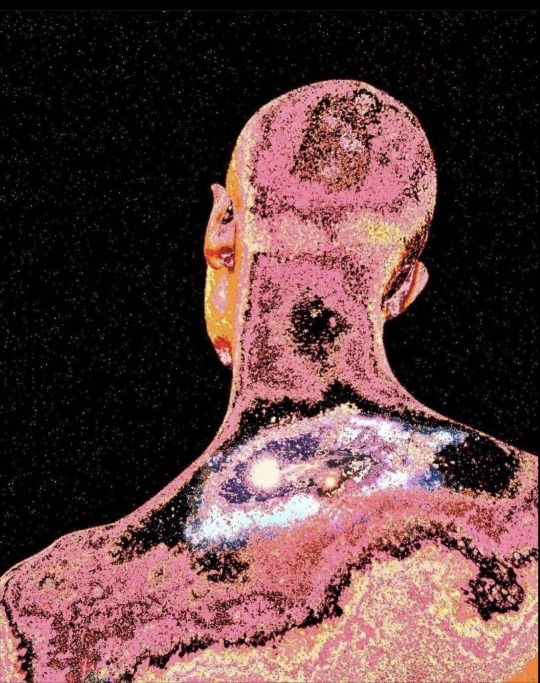
#numerology#vedic astrology#astrology#astronomy#science#greek mythology#hinduism#islam#christianity#bible#holy quran#literature#research#music#ancient egypt#physics#zodiac#zodic signs#astro notes#tarot#chakras#karma#buddhism#jewish#Destiny number#Destiny 9#9 life path#life path#life path 9
73 notes
·
View notes
Text
Cultural and Ethnic groups of Greece by c.minoa
#greece#greek history#greek people#minorities#vlachs#ablanian#turkish#aromanian#jewish#afrogreek#anatolian#rum#arab#romani#bulgarian#armenian#sarakatsan#arvanites#pomak#history#culture#mediterranean#balkans
113 notes
·
View notes
Text
201 notes
·
View notes
Note
Hey, I hope you’re well! I just heard that a university professor on the USA West Coast is going to be giving a free Zoom lecture about the Jews of Thessaloniki and Rhodes. I’m pretty sure I remember you posting about the topic before so I wanted to share a link. The time zone difference would probably be wretched, but I figured I’d try offer something back after I’ve learned so much from your blog.
https://holocaustcenterseattle.org/programs-events/virtual-lunch-and-learn-series
Ya su and thank you so much for the link! (And the good words 💙) We can view the recorded lecture if we don't catch it live, so that's a win!
#romaniote#romaniote jews#thessaloniki#rhodes#jewish history#greek history#greek jewish#greek jews#answered
1 note
·
View note
Text
One of the weirdest things about being very outspokenly Jewish but also having a Greek dad is that people gaslight themselves about my name
For reference I have a super Greek name first and last, think like Vasiliki Dimitriou
And when I tell (non Jews) that I’m Jewish they often say “wow I should have known; your name is so Jewish sounding”
MY NAME IS LITERALLY THE LEAST JEWISH IT COULD POSSIBLY BE
#jumblr#frumblr#jewish#names#greek tumblr#why isn’t greek tumblr called grumblr#silly gentiles#goyish nonsense
33 notes
·
View notes
Text




#whiteboard arts :)#ft:#sam should be allowed to say fuck#attempted designs for arthur lester (although they don't look quite right)#jewish stanley because i'm partially jewish and i say so#martin but a greek statue <3#n e ways#tma#tma fanart#the magnus archives#lotr#lotr fanart#samwise gamgee#malevolent#malevolent fanart#arthur lester#tspud#tspud art#the stanley parable#tspud stanley#tspud narrator#whiteboard#mossiistars
80 notes
·
View notes
Text

So happy to finally have this done! Only two more grids to go!
(1) Livia Drusilla, Livia Orestilla, Lollia Paulina
(2) Milonia Caesonia, Valeria Messalina, Agrippina the Younger, Claudia Octavia
(3) Claudia Acte, Poppaea Sabina, Statilia Messalina, Sporus <3
(4) Galeria Fundana, Antonia Caenis, Berenice of Cilicia, Domitia Longina
(5) Pompeia Plotina, Vibia Sabina, Antinoüs <3, Faustina the Elder
(6) Galeria Lysistrate, Lucilla, Panthea, Faustina the Younger
(7) Bruttia Crispina, Marcia Demetrias, Flavia Titiana
#roman empire#roman empress#ancient rome#digital art#history art#1st century bc#1st century#2nd century#empress livia#messalina#lucilla#roman tag#jewish tag#greek tag#julio claudian dynasty#flavian dynasty#nerva antonine#caligula#emperor nero#hadrian#augustus
14 notes
·
View notes
Text
Sorry about the blasphemy, everyone.
#greek mythology#tumblr polls#Judaism#Jumblr#Jewish#Zeus#Hera#Athena#Artemis#Apollo#Dionysius#hephaestus#Hades#Poseidon#Hermes#post o' mine
64 notes
·
View notes
Text

I’m no Hecate expert but I’m pretty sure everyone fw Hecate in mythology, including and especially Zeus and Demeter.
#they’re confusing ancient witches with the women killed in witch trials wow#but what do you expect from ‘witches’ who appropriate Jewish traditions?#it only makes sense they’d appropriate Greek myths as well#I’ve seen more than one post like this btw#so it appears to be a sort of mantra in those circles#greek mythology#ancient greek mythology#greek goddess#zeus#Demeter#Hecate#Hekate
37 notes
·
View notes
Text
as the holidays come to a close, i'm left to wonder....
how does religion work in the pjo universe?
#pjo#percy jackson#percy jackon and the olympians#percy series#pjo series#pjo tv show#pjo hoo toa#pjo fandom#percy pjo#annabeth pjo#like i know rick riordan is a white goyische man#so he probably didn't think this through and just assumed that they all celebrated Christmas culturally#but how does religion play in the pjo universe#even if you're like christian do you just leave religion when you come to camp#like i understand that most kids are pretty irreligious and probably won't care about leaving religion#but as someone who went to religious school there's at least one kid who is devout as fuck and'll just keep practicing#also like plenty of religions practiced today are the same age as the ancient greek religion- ex. judaism and hinduism#how does that clash work-there were exchanges of jewish and hindu culture in the ancient greek era so it's safe to assume jewish and hindu#half-bloods would exist#also on the hindu can of worms- we are also a polytheistic religion#does belief in that renounce any connection to the greek gods#also the comedic potential of the clash in SO underutilized#i can see luke at some point just scraping the food into the hermes fire saying 'accept my offering- o g-d who is NOT greek'#or some other camper reciting the brahmarpanam or offering Du'a while offering food to the gods#you can't tell me at least one kid yelled up at the sky 'well i'm converting now! fuck you dad!'
97 notes
·
View notes
Note
Top 5 myths/legends/folklore? :)✨
Thank you for the fun ask! ✨ (and sorry for taking so long!)
1. The Sacrifice of Iphigenia
I'm not exactly sure why, but it may be my favourite piece of Greek mythology. There's just something about it that resonates with me. I definitely prefer the versions in which Iphigenia gets saved at the last minute by Artemis (and I'm here for any potential queer readings).
I also think it's interesting how it highlights the parallels between a wedding ceremony and a ritual sacrifice (things like white colour symbolising purity, symbolic death of the bride for her old family, priest being present, a subsequent feast, even the fact that blood was technically expected in both cases). Something I've been thinking about ever since I watched the new Contrapoints video.

2. Hyacinth and Apollo
The original death of a twink! Jokes aside, it's quite a tragic story. What I find the most interesting about the myth however is how Hyacinth was mourned/celebrated during the Spartan festival of Hyacinthia. If you want to get really heretic, you could see the festival as a forerunner of some of the later Christian Easter traditions, with the whole death/rebirth motive.
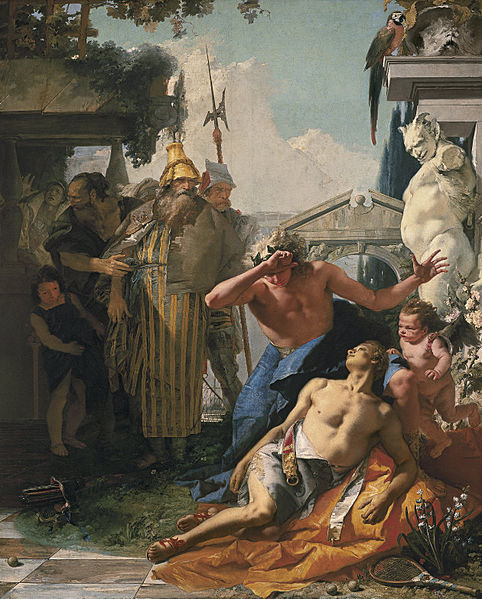
3. Lady Godiva
One of the earliest examples of women getting involved in British politics!
Again, jokes aside, I do appreciate this legend because it is essentially a story of a woman taking risks for a cause that she believes in. It also brings up the idea that femininity can be used as a weapon. That is not necessarily my most favourite take of all, but it's certainly interesting - and this old English myth captures that perfectly!
also the iconography is so cool I mean--
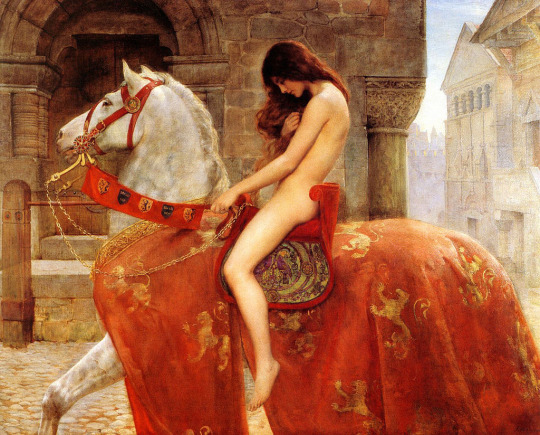
4. The Legend of El Dorado
I definitely think that the legend of the mythical city filled with gold located somewhere in South America can tell one a lot about European colonialism. Not an expert on it by any means (though I'd love to read more about it at some point), but I really enjoyed how it was portrayed in Voltaire's Candide!
5. The Golem of Prague
Okay, obligatory hometown reference. I do find Jewish folklore genuinely fascinating, and the story of a being made of clay that came to life is perhaps the most interesting of all! Some parallels can be traced with later stories - like Frankenstein - or even with things like robots or AI, if you stretch the definition a bit.
It can be seen as a warning that technology can turn against its creator which dates all the way back to the 16th century!
(I also find it really interesting how much emphasis Jewish culture places on the power of words, and the story of the Golem is a great example of it, since words are literally what brings the golem to life).
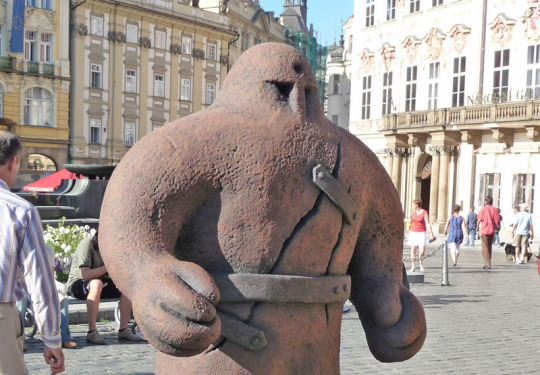
#ask#ask game#mythology#myths#greek mythology#tagamemnon#the iliad#iphigenia#artemis#hyacinthus#apollo#lady godiva#el dorado#golem#prague#jewish folklore
41 notes
·
View notes